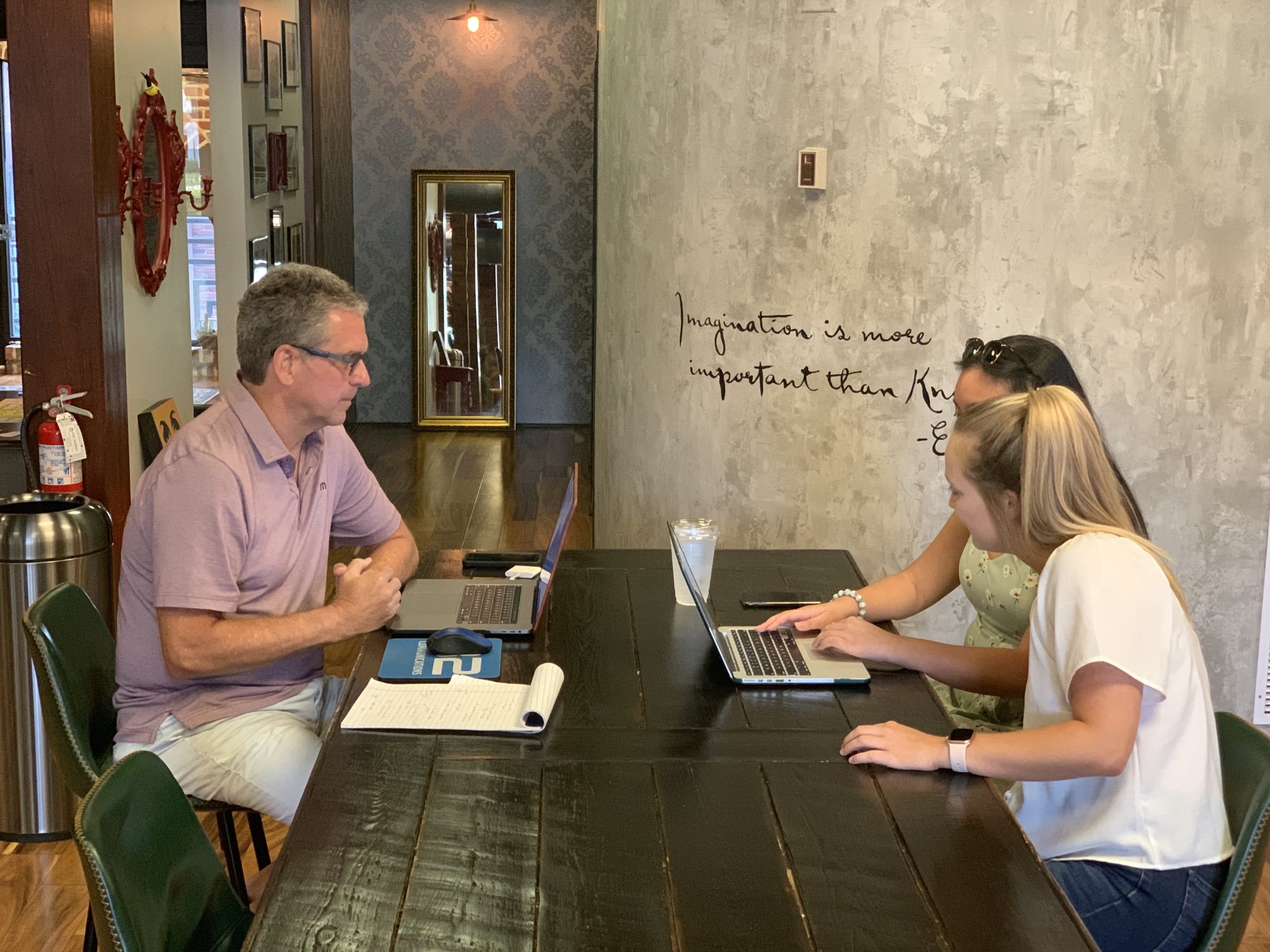
Mentors can be very impactful to your career and, in turn, your life.
Research from the Kellogg School of Management at Northwestern University shows that mentorship can extremely beneficial, especially when mentors pass down intuitive information. A study analyzed the careers of more than 37,000 mentors and protégés, and found that mentors who passed along knowledge gained through work experience rather than specific skills produced mentees who were significantly more likely to be highly successful.
B2’s spring 2021 intern, Trina Ralph, interviewed B2 principal Kyle Parks about his views on mentoring. Parks had two skilled editors, Rob Hooker and Alecia Swasy, who served as mentors during his journalism career in the business section of the then-St. Petersburg Times. They taught him about everything from writing a good “nut graph” to managing difficult interview subjects to understanding his audience.
When he moved from journalism into a corporate PR and marketing career, Parks had a mentor who helped him master his new role as director of corporate communications at Walter Industries, Inc. Joe Ledlie, a journalist turned PR pro who ran The Ledlie Group in Atlanta, was generous with his time and counsel. Ledlie's advice was particularly valuable when he helped Parks with crisis communications related to a tragic coal mining accident in Alabama that involved 13 deaths.
These experiences with mentors shaped Parks’ views on the value of mentorship, which is a cornerstone of B2’s culture.
Ralph talked with Parks to talk about how to find a mentor and how to make sure the relationship works well for both people.
How do you define a “mentor”?
A mentor is someone you look up to. As a mentor, this person should be able to share personal and professional experiences with you. The goal is to help you learn and grow into that successful person you want to be. A mentor is there to listen, and then to give you advice tailored to your specific needs.
How do you find mentors?
Often, finding a mentor can happen organically. It may be someone you know in your workplace or industry that you respect. This can range from your boss to another higher-level colleague, to someone outside your company that you admire.
If there isn't an obvious person at your workplace, ask someone outside the organization to fill the role. Odds are, the person will be pleased that you asked. And they'll be happy to make some time for you.
What are some qualities you should look for in mentors?
A mentor should be encouraging, specific with thoughts and feedback, and available on a regular basis. It’s important for the mentor to be able to talk about strategies for addressing challenges. They should also encourage you to think beyond your current position to consider your longer-term career path.
How do you get the most out of the mentoring relationship?
Ask questions – lots of them. And go beyond talking about specific assignments. Have broader discussions that start by asking a question like “Why did you handle that difficult work situation that way?” Or say, “Tell me about a time in your career where you made a mistake but learned a major lesson from it.”
What should new PR professionals think about early in their careers?
Think of the bigger picture, your future, and the years ahead. As you start your career, you don’t want to be in too narrow a job role, for example. You’ll want to find ways to grow and expand your knowledge in different fields.
One way to grow is to take a broader role at your current organization. Another way can be to get a wider-ranging role with another organization. If you end up working at a small company or nonprofit that has a minimal staff, make sure you find help and advice externally.
All this can seem a bit overwhelming. Mentors can be invaluable for you as you figure things out.
